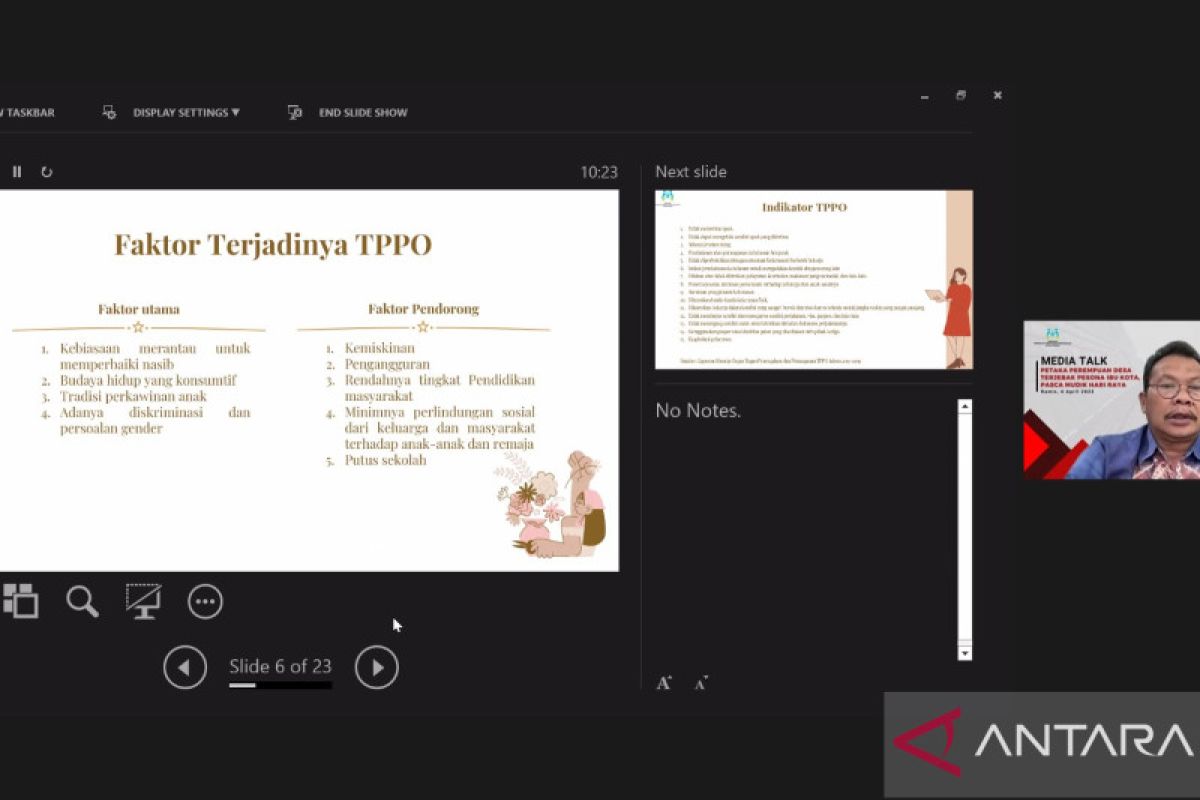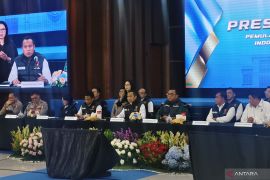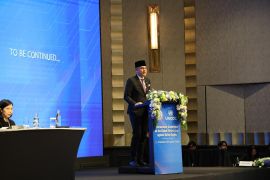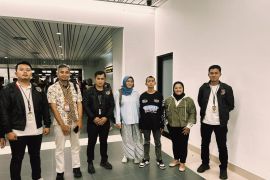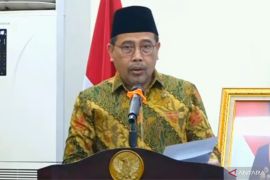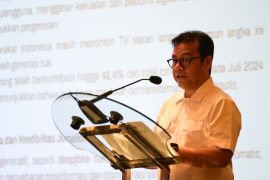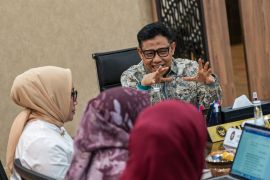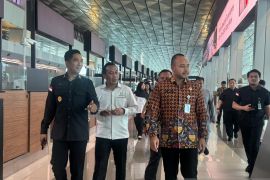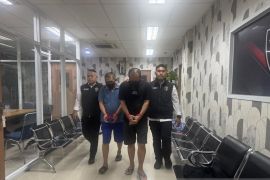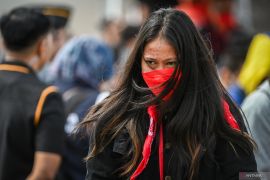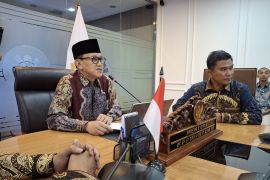This understanding on human trafficking is important due to high urbanization that is not followed by adequate knowledge among those arriving.
This condition causes many to be used by parties that ensnare those arriving into human trafficking, he stated during the "The Disaster of Village Women Trapped in the Charm of the Capital, Post Homecoming" webinar, Thursday.
"This is carried out, so that the people do not trust promises made by other people or companies easily," Santosa stated.
He highlighted that the main factors that cause human trafficking include the habit of moving from place to place to improve personal circumstances, consumptive lifestyle, child marriage, as well as gender discrimination and issues.
Meanwhile, factors that drive them are poverty, unemployment, low level of education, lack of social protection from families and society to children and teenagers as well as school dropouts.
Santosa stated that indicators of human trafficking include not receiving wages, incapability of managing received wages, debt trap, and restriction or deprivation of freedom of movement.
Moreover, in human trafficking, victims are not allowed to stop working, are isolated or restricted from contacting others, are held captive or not given health services, adequate food and others.
Human trafficking also involves threats to the victims' families or children, threat of violence, signs of physical violence, being obligated to work in appalling conditions and/or having to work for extended periods of time.
In addition, victims cannot pay for or manage travel, visa, and passport on their own, and they do not hold personal identification letters or travel documents.
Lastly, victims use fake passports or identities provided by a third party, and they face exploitation through prostitution.
"By disseminating (information on) human trafficking, if the people experience an incident, such as having their identity being fabricated, then they should be able to realize that they are encountering human trafficking," Santosa pointed out.
Related news: Fifty percent of human trafficking cases involve child victims: Mahfud
Related news: Govt committed to eradicating human trafficking mafias: Mahfud MD
Related news: Rohingya refugees in Aceh must not run away: UNHCR
Translator: Anita Permata D, Fadhli Ruhman
Editor: Sri Haryati
Copyright © ANTARA 2023
